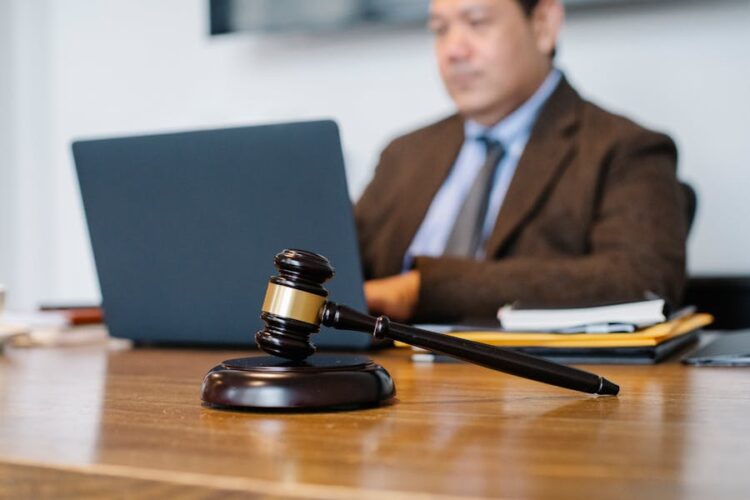Knowing what to ask a personal injury lawyer can make all the difference when pursuing a legal claim. The right questions help you understand the lawyer’s expertise, approach to handling cases, and whether they fit your needs best. In this guide, we’ll cover critical questions you should consider asking during your consultation. By being well-prepared, you can make an informed decision and feel confident about the legal representation you choose. With the guidance of the right personal injury lawyer, you’ll have a better chance of achieving a favorable outcome.
What to Ask a Personal Injury Lawyer?
When meeting with a personal injury lawyer, it’s important to ask about their experience handling similar cases, success rate, and their approach to communication. Other key questions include their fee structure, how long they expect the case to take, and whether they have trial experience if your case goes to court. By asking these questions, you can determine if the lawyer is a good fit for your needs and if they have the expertise to secure the compensation you deserve.
Why It’s Important to Ask the Right Questions?
Knowing what to ask a personal injury lawyer is an essential step in finding the right legal representation for your case. By asking the right questions, you gain a clearer understanding of the lawyer’s qualifications, their track record with cases similar to yours, and their approach to handling claims. This process allows you to assess whether their level of experience and expertise aligns with the complexity of your situation.
One of the key areas to explore is their fee structure. Understanding how they charge—whether on a contingency basis or with upfront costs—helps you make an informed financial decision. It also ensures there are no surprises later in the process. Additionally, asking about their communication style and availability provides valuable insight into how they will handle your case. Knowing how often they provide updates, how responsive they are to inquiries, and whether you’ll have direct contact with the attorney can significantly impact your overall experience as a client.
Ultimately, asking thoughtful, detailed questions gives you more control over the process. It enables you to select a personal injury lawyer who not only has the right qualifications but also works well with your preferred communication style and budget. By doing so, you’ll feel more confident in your choice of representation and better prepared to navigate the personal injury claims process.
By thoroughly questioning potential attorneys, you can assess their strategic approach, negotiation skills, and experience with cases similar to yours. A strong lawyer should clearly explain how they plan to handle your case, work with experts, and navigate challenges such as insurance disputes. Evaluating past case outcomes and client testimonials helps determine their reliability and success rate. Taking the time to ask these essential questions ensures you choose a lawyer who aligns with your needs, giving you confidence and clarity throughout the legal process.
What Questions Should You Ask a Personal Injury Lawyer?
Determining a Lawyer’s Experience
When choosing a personal injury lawyer, consider their background and familiarity with cases like yours. Understanding how long they’ve been practicing and the type of cases they’ve handled offers confidence in their ability to navigate the legal complexities of your situation. A lawyer with proven expertise is more likely to anticipate challenges and develop strategies that work in your favor.
Evaluating Success Rates
Another critical factor is the lawyer’s history of achieving positive results. Look into their track record of settlements and trial outcomes. High success rates often indicate that they are prepared to manage difficult cases and deliver favorable resolutions. This insight helps you gauge their ability to effectively represent your interests.
Understanding Fee Structures
It’s important to know how you’ll be billed for legal services. Many personal injury attorneys work on a contingency fee basis, which means payment is only required if the case is successful. However, gaining clarity on their percentage, potential additional costs, and the financial implications of an unsuccessful case helps ensure you are comfortable with the arrangement.
Focusing on Communication
The attorney-client relationship is strengthened by clear and consistent communication. Learn about the lawyer’s approach to keeping you informed, such as how frequently you’ll receive updates and who you’ll be interacting with. Reliable communication ensures that you remain well-informed and confident throughout the legal process.
How Do I Choose the Right Personal Injury Lawyer?
- Assess Their Expertise: Start by examining the lawyer’s professional background and credentials. Consider their years of experience and the number of cases they have handled that are similar to yours. A lawyer with specialized knowledge in personal injury law will be more familiar with the legal nuances of your case, increasing your chances of a favorable outcome. Understanding their area of expertise also ensures they are well-prepared to address the challenges your case may present.
- Check Client Reviews and Testimonials: Look at online reviews and ask for references from previous clients. Reviews and testimonials provide valuable insight into the lawyer’s reputation, professionalism, and treatment of clients. Positive feedback can reassure you of their capabilities, while any patterns of negative reviews may be a red flag. References can also give you a clearer picture of what to expect in terms of communication, case management, and results.
- Evaluate Their Communication Style: Consider how well the lawyer communicates complex legal concepts. Are they able to explain your case clearly and answer your questions thoroughly? A good lawyer will take the time to address your concerns and ensure you understand the legal process. Effective communication not only helps you stay informed but also establishes trust and confidence in their ability to represent you.
- Discuss Their Approach to Case Management: Ask about their strategy for handling personal injury claims. Do they aim to settle quickly, or are they prepared to take the case to trial if necessary? Understanding their approach to resolving disputes will help you determine if their methods align with your goals and expectations. This insight can also reveal whether they are willing to fight for a fair settlement or if they prefer to avoid prolonged litigation.
- Understand Their Fee Agreement: Make sure you fully understand the lawyer’s fee structure before committing. Most personal injury lawyers work on a contingency fee basis, meaning they only get paid if you win. However, it’s important to clarify their percentage, any additional costs, and what will happen if the case is not successful. Transparency regarding fees ensures there are no surprises and that you can make an informed financial decision.
Why Do These Questions Matter?
- Identify the Lawyer’s Strengths: Asking detailed questions allows you to evaluate the lawyer’s skills, knowledge, and past successes. By understanding their strengths, you can better determine if they are capable of effectively handling your personal injury case.
- Assess Their Experience: Questions about the lawyer’s experience help you verify their background and familiarity with cases similar to yours. An attorney with relevant experience is more likely to know the legal strategies needed to secure a favorable result.
- Ensure They Align with Your Needs: Discussing your case with the lawyer provides insight into how well they understand your goals and expectations. By asking about their approach to case management and communication, you can ensure that their methods align with your preferences.
- Confirm Transparency and Qualifications: A good personal injury lawyer will be open about their credentials and willing to address any concerns you have. By asking these questions, you can confirm their qualifications and trustworthiness. Transparency helps establish confidence in their ability to represent your interests.
- Increase Confidence in Their Communication: Questions about how the lawyer communicates and how frequently they provide updates help you gauge their accessibility and responsiveness. Strong communication ensures that you’re informed every step of the way and allows you to build a solid working relationship with your attorney.
Final Thoughts
When seeking legal representation for a personal injury case, knowing what to ask a personal injury lawyer is essential. You can make a more informed decision by asking about their experience, success rate, communication style, fees, and case strategy. This process ensures you choose a lawyer who is qualified, transparent, and well-suited to your specific needs. With the right legal guidance, you’ll be better equipped to navigate your personal injury claim and secure the compensation you deserve.
FAQ’s
Q. How do I know if a personal injury lawyer is experienced enough for my case?
A. You can ask how many years they’ve been practicing personal injury law, how many similar cases they’ve handled, and their success rate.
Q. What should I look for in a personal injury lawyer’s communication style?
A. Look for a lawyer who explains things clearly, responds to questions promptly, and keeps you informed about the status of your case.
Q. Is it normal for personal injury lawyers to work on a contingency fee basis?
A. Yes, most personal injury lawyers work on a contingency fee basis, meaning they only get paid if you win your case. Be sure to clarify their percentage and any additional costs upfront.
Q. How do I find reviews or references for a personal injury lawyer?
A. You can look for online reviews, check their website for client testimonials, and ask the lawyer directly for references from past clients.
Q. Can a personal injury lawyer handle my case if it goes to trial?
A. Many personal injury lawyers are experienced trial attorneys. It’s important to ask whether they’ve taken cases to trial before and their court track record.










